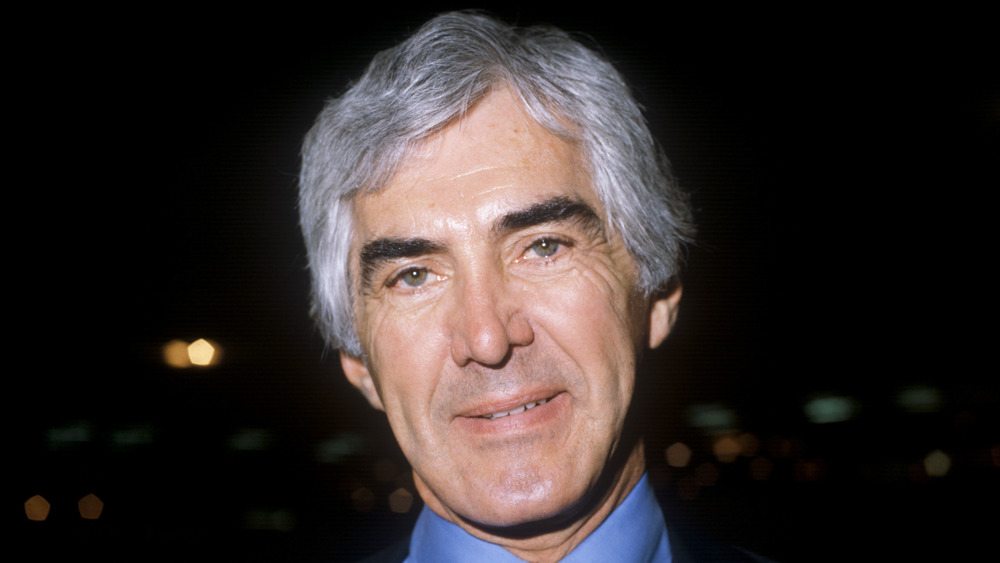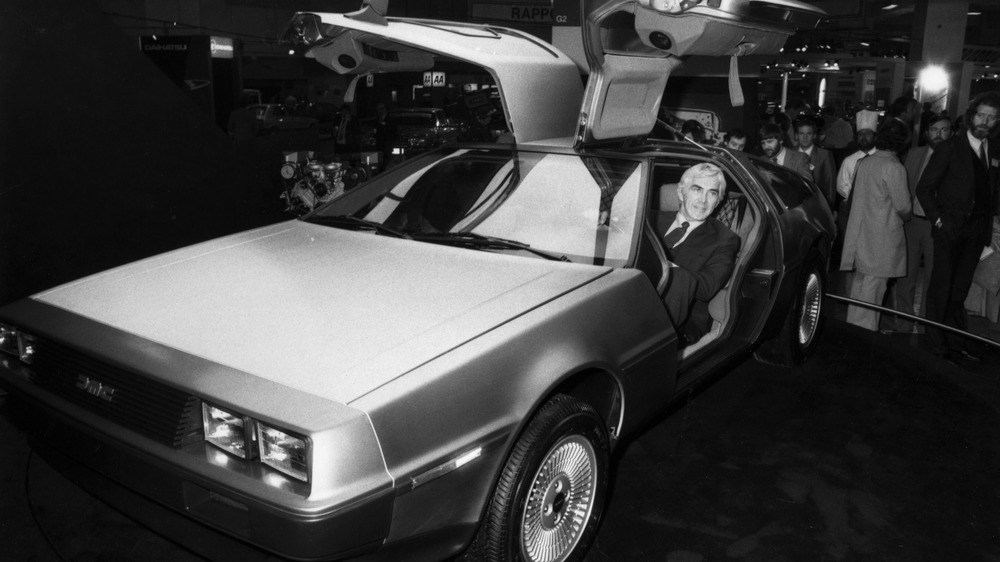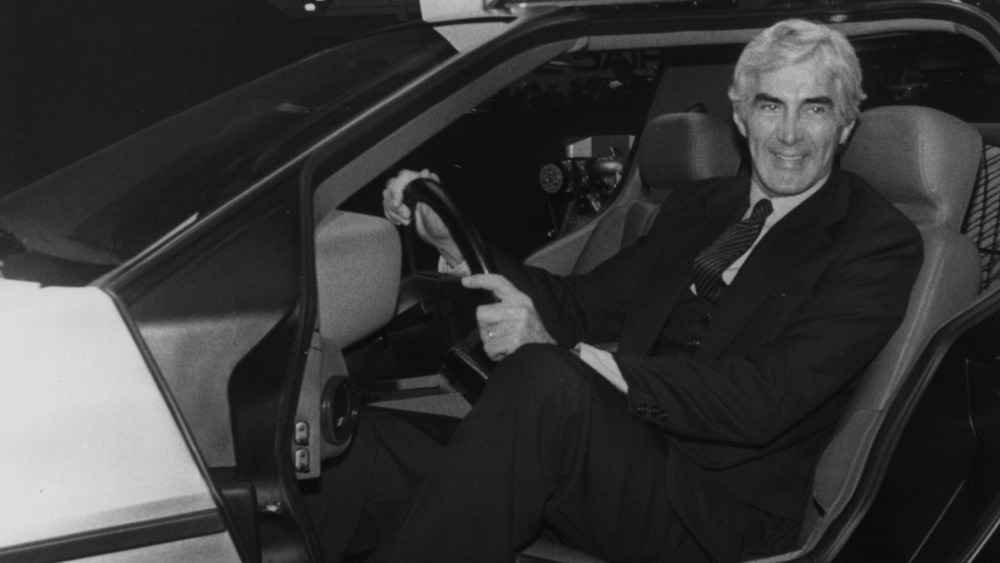Why John DeLorean Went Bankrupt
The DeLorean wowed movie audiences in 1985, as the futuristic, spaceship-looking thing streaked across the screen, reached 88 miles per hour, and flashed back to the 1950s in Back to the Future. And as you might expect, the creator of such a unique car was himself unique.
As noted in his New York Times obituary, John DeLorean was a rising star in the auto industry when he got his first job at the Packard Motor Car Company. Just four years later he was hired at General Motors, then the largest car company in the world. He would have a meteoric rise in that company, becoming the youngest general manager of the Pontiac division at just 40 years old. Four years after that, he moved over to Chevrolet, where he was that brand's youngest general manager. He was made a vice president at the company in 1972.
But DeLorean didn't feel like he really fit in at GM. The NYT called him "an anomaly in an industry then dominated by buttoned-down executives." He dyed his hair black and sported long sideburns. He unbuttoned his shirts down to his navel and married a teenage starlet. It was rumored in the industry that he'd one day be president of the company, but it wasn't meant to be. He left the company in 1973 with dreams of totally reimagining the cars we drive.
"If we were super, super lucky and did everything right, we might some day have another BMW," DeLorean said in 1977.
John DeLorean's car company looked to the future, but never made it there
With celebrity investors like Johnny Carson and Sammy Davis Jr., the bright-eyed engineer founded the DeLorean Motor Company and opened a factory in Northern Ireland in 1981. Despite the revolutionary design, the DMC-12, the only car the company produced, was plagued with problems from the get-go. According to CNN, he'd hoped to sell it for $12,000 — not too much higher than the industry average of $10,000 at the time — but by the time it hit showrooms, it cost a whopping $25,000. The U.S. Bureau of Labor Statistics will tell you that's almost $75,000 in today's economy.
Then there were problems under the hood. Despite its flashy look — the lack of paint on its stainless steel body, the way its wings opened up like a seagull's, the engine mounted in the back — its horsepower was disappointing. It took over three seconds longer to get from 0 to 60 than competing sports cars like Corvettes and Porsches.
The DMC-12 didn't sell as well as DeLorean hoped, and financial troubles led the British government, which had ponied up over half of the $200 investment for the project, to open an investigation into the company's accounting. Even though it turned up no evidence of criminality, the factory closed in October 1982. But DeLorean's troubles were only just beginning. That same month, John DeLorean was arrested in an FBI sting operation.
A drug smuggling charge contributed to John DeLorean's bankruptcy
The feds got him on video agreeing to smuggle $24 million worth of cocaine, a last-ditch effort to save his floundering company. The eccentric carmaker declared bankruptcy a week later. According to Forbes, the deal was basically a set-up on the part of the FBI. It was an FBI informant who had presented the offer, not DeLorean. He'd only accepted the deal as a way of keeping his company afloat. (This was a guy whose attorney once said "had one of the most warped views of right and wrong" he'd ever seen.) He apparently didn't even have any intention of honoring the deal in the first place, so he was probably extremely lucky that it was the FBI and not real drug traffickers.
Even though he was acquitted of the charges, the damage was already done. His third wife, Cristina Ferrare, left him after the bankruptcy, and he was forced to sell his home in Bedminster, New Jersey. The 500-acre estate was later purchased by Donald Trump, and it is now part of a golf club that Mr. Trump regularly visits.
John DeLorean died in 2005. When asked about the legacy his father left behind, DeLorean's son, Zachary, said, "On the one hand, I feel proud of my father. On the other hand, I just want to blow the f***** thing up."


